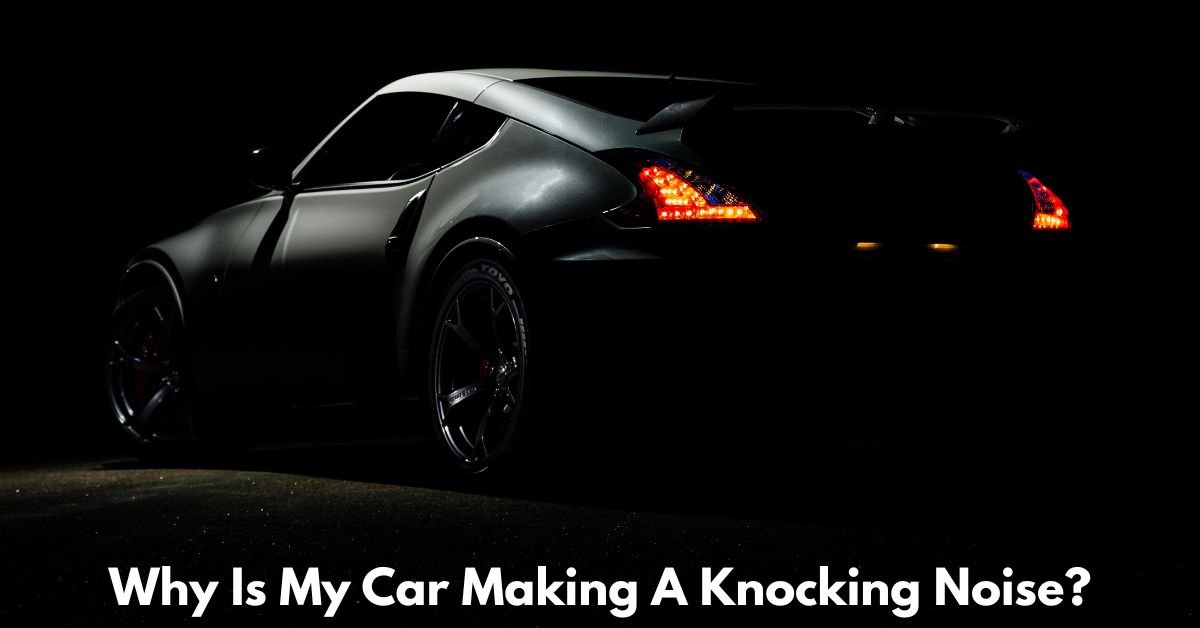Hearing a knocking noise coming from your car can be alarming—especially if it’s persistent and seems to be getting worse. Whether you’re idling at a stoplight or accelerating on the highway, that unfamiliar sound often raises one big question: Is something seriously wrong with my engine? The short answer is: it could be. But not always. Let’s break down what causes knocking sounds in cars, how to diagnose them, and what steps you should take next.
Why Is My Car Making a Knocking Noise?
What Does a Knocking Noise Sound Like?
A knocking noise usually sounds like a repetitive tapping or thumping that comes from the engine area, though it can sometimes be mistaken for rattling or pinging. It’s often most noticeable during acceleration, but you might also hear it at idle or when going uphill. The pitch and frequency of the knock can vary depending on the underlying issue.
Now let’s explore some common causes:
1. Engine Knock (Detonation)
What it is:
The most popular and widely recognized type of knocking is this one. It occurs when fuel in the engine cylinder ignites prematurely or unevenly. Instead of a smooth burn, you get mini-explosions, which create that distinct knock.
Common causes:
- Using low-octane fuel in a high-performance engine
- Faulty spark plugs
- Carbon deposits on valves or piston heads
- Incorrect ignition timing
Fixes:
Start with using the manufacturer-recommended fuel grade. If the knocking persists, it may be time to check or replace your spark plugs, or get your ignition system inspected.
2. Rod Knock
What it is:
Rod knock happens when the connecting rod bearings wear out or get damaged. This causes extra clearance between the components, which results in a deeper knocking sound that increases with engine speed.
Warning signs:
- Deep, metallic knocking from the engine block
- Low oil pressure
- Engine performance issues
Fixes:
Rod knock is serious. If you suspect it, stop driving and get the engine checked immediately. Repairing it often involves an engine rebuild or even a replacement.
Must Read: Why Is My Car Bouncing?

3. Loose or Worn Engine Components
Sometimes, the knock isn’t from combustion or internal engine parts, but from something a little more external.
Examples include:
- Loose timing chain
- Worn-out valve lifters
- Damaged harmonic balancer
These issues can all create repetitive knocking or ticking noises. Ignoring them can result in more serious issues later on.
Fixes:
A mechanic can often isolate these issues with a stethoscope or during a diagnostic inspection.
4. Bad Fuel or Dirty Fuel Injectors
Low-quality gasoline or contaminated fuel can also be the culprit. Incomplete combustion can lead to knocking noises and decreased engine performance.
Fixes:
Try a fuel system cleaner or get your fuel injectors professionally cleaned. Always fill up at reputable gas stations and avoid letting your tank run too low too often.
5. Transmission or Suspension Issues
If the knocking noise happens only when driving over bumps or turning, it might not be the engine at all. Worn-out suspension components like struts, bushings, or ball joints can also make knocking sounds.
Fixes:
Have a technician inspect the undercarriage. In addition to removing the noise, replacing old suspension components enhances ride quality and safety.
What Should You Do If You Hear Knocking?
- Listen carefully: Is the noise coming from the engine? Does it change with speed or RPMs?
- Check the fuel: Did you recently switch fuel types or use an off-brand station?
- Inspect your dashboard: Warning lights, low oil pressure, or overheating could point to engine trouble.
- Schedule an inspection: If the sound persists, a professional diagnostic is your best bet.
Final Thoughts
A knocking noise in your car should never be ignored. While some causes are minor and relatively inexpensive to fix, others—like rod knock—can be catastrophic if left unattended. Think of the knocking as your car’s way of asking for help. The sooner you address it, the better chance you have of avoiding a costly repair.
If you’re unsure what’s causing the noise, it’s always wise to let a trusted mechanic take a look. Better safe than stranded—or worse, dealing with a blown engine.
